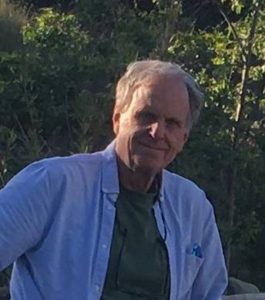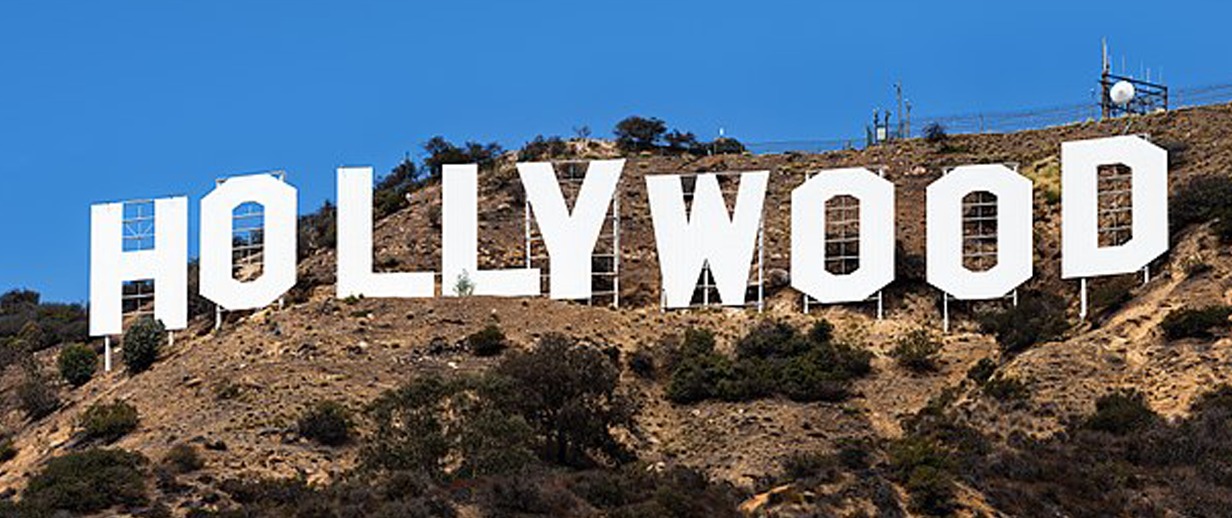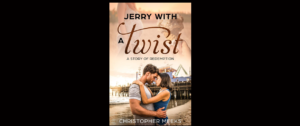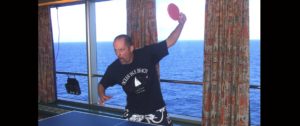We are pleased, proud, and privileged to present “A Hollywood Love Story – 1986” by Guy Prevost, an extraordinary screenwriter, novelist, and short story writer. This is a stand-alone excerpt from his novel Vermont Rocks.
We hope to bring you more work by Guy in the near future, in this time of sheltering in place, wondering what the world will look like when the quarantine is lifted.
Here is a brief bio, introducing you to Guy:

Guy Prevost’s background encompasses work as a development executive in the movie business, screenwriter, college teacher, and fiction writer. He has written produced episodes of the TV shows Walker, Texas Ranger, Dead Man’s Gun (Writers Guild of Canada Award Nominee) and his latest produced credit was the successful action/thriller Dinoshark on the SyFy Channel. His short stories have appeared in SQ Mag (contest prizewinner), The Non-Binary Review, The North Atlantic Review, The London Reader and AftermathMag.org . Guy and the Haitian novelist Mario Malivert have just completed a new screenplay Taxi Moto set in contemporary Port-au-Prince. – James Victor Jordan
A HOLLYWOOD LOVE STORY 1986
It seemed that everyone was moving around me and I was standing still. My producer Henry had picked up stakes and moved back to New York; my best friend and writing partner Haggard quit the business and was going into real estate; and Portia – Portia – had vanished from my life as quickly as she had appeared. And like some kind of mollusk, I was affixed to my day job as a reader at Quorum Studios.
I took the long march down the second floor hallway of the studio that day, as I sometimes did, speculating about the “eye aversion” protocols that invariably took place here. That is, if two people approached from some distance, each would quickly evaluate the other’s status to determine if they merited a “nod,” an actual “hello”, or simply eyes focused on the carpet as if engrossed in a thought process too elevated to acknowledge the presence of another human. Haggard, as a prank, had once distributed a flyer under all the office doors, an invitation to attend a special “Eye Aversion Seminar” to go over the fine points of this practice. It was especially helpful, he advertised, for the senior executives. “Also useful in the elevator,” he said.
But I was alone in the hallway that morning. Five scripts under my arm, I entered the main foyer and approached the bank of secretarial desks that spoked out from the executive offices. Molly was confabbing with Toby, the wonderfully inefficient Assistant Manager, who was distributing new scripts to a gaggle of other readers who seemed to be more animated than usual. And I was unhappy to see Amy at the center of the group, as she joined the conversation with Molly. I hesitated, thinking of leaving and returning later, since the two of them together was hard for me to take right now. Had they shared notes? Who was using whom? Before I could make a move, Toby tapped me on the shoulder. Another bombshell was on the way.
“Big shakeup, Jack. Kerchner is out. They’ve hired a new creative exec. Portia Dodd. Used to work for Rasmussen. Princeton grad. Great tennis player, I understand. Don’t you play tennis?”
“A little,” I said, trying to absorb this shock, while also resenting the fact that Toby knew anything personal about me. Molly caught my eye. I knew couldn’t escape. Amy withdrew to sit and read the Hollywood trade papers. I heard Driscoll griping, his overbearing voice a welcome diversion. He was the veteran of foreign wars and many palace coups in the story department such as this one.
“Are we going to be paid for this?” he squawked.
“Heard the news? Portia Dodd,” said Molly now. She glanced through the half open doorway to the inner office. “She wants to meet with each reader separately. May I set you up for 3:30? Can you hang around until then? Oh, she also wants all of you to do coverage on this,” she handed me a script. “To make sure you’re all on the same page.”
“Coverage” was what we did. “Cliff Notes” for the execs on the scripts submitted to the studio by the truckload: Logline, synopsis, comments, and – the verdict: RECOMMEND, RECOMMEND WITH RESERVATIONS, or, as in most cases, the fatal PASS.
Amy was steps away, waiting for her meeting, as Portia emerged from her inner office.
“Hello, Jack” she said. Did I see the faintest blush? Maybe. I nodded. And then, as if suddenly realizing something, she turned back to her new secretary: Molly(!).
I viewed a disturbing raking shot of the three women: Molly looking down at her appointment book, the short Sassoon style hair framing her high forehead and almond eyes; Amy still absorbed in the trades, dressed in tight jeans with her trademark librarian glasses; and Portia lightly gliding down the corridor with a male exec. I had not asked for this, right? Amy and Molly had really chosen me, and I certainly hadn’t complained. Tina Turner’s “What’s Love Got to Do With It?” was the anthem of the age. But Portia – Portia – that was another matter.
I retreated to the Rough Cut, a bar a couple of blocks off the lot. Several other readers were there, grousing about the change and having to read the sample script for the new boss.
The owner/bartender Polikoff, was himself a former reader. He brought me a gin and tonic. Driscoll threw darts at the board shellacked with Polikoff’s old coverage of the original script of Star Wars. A “PASS” and complete pan: Hence the Rough Cut.
Maybe this new development was my cue to quit. Maybe I shouldn’t even go back to the studio for the appointment. I guzzled the gin and tonic as Driscoll ranted.
“Women in the business. Women execs, women directors, soon they’ll be studio heads. They’re on the rise, and they all come from same mold it seems. Ivy league, English majors, and of course, eminently f***kable…these are the new fantasy women of the lecherous older execs. More sensible than actresses, who are usually unstable and maybe not so bright. This one used to work for Rasmussen, so you better believe she spent some time in that sensory deprivation tank of his.”
The ugly cynicism darkened my mood. I wanted to defend her, of course. I would at all costs. But I knew this would arouse suspicion, as I guessed that Driscoll had his own interest in Portia. I decided to keep the appointment after all.
Portia closed the door behind her and said nothing for a moment. She went back to her desk. I couldn’t help but be impressed by the office, everything modern and plush. Many congratulatory gift baskets and floral arrangements were placed on the furniture and even the floor. Offerings for the new exec, from writers, agents, and others who would so desperately need her approval, her access, her power. She was dressed in a linen suit, gauzy white top, and sandals, not quite casual, not quite formal. Her hair was in the ponytail. You might say just right for an “executive” who was also “creative.”
“You don’t have to do the trial script,” she said, with a faint smile… “You’ve already read it.” She could barely look at me. It was Gregson’s script about the Boer War. I’d done notes on it as a favor before she vanished. Before she returned to Gregson, who wrote Bond films, dialog for 007, the suave Sean Connery. He was old enough to be her father.
“I’m so embarrassed,” she said. “I behaved terribly. I meant to call you many times, or write you. I was even going to do it as ‘coverage.’ Log line: ‘After development girl and reader have romantic idyll at farmhouse, she mysteriously drops out of sight.’ But any time I’d get to the comments, they seemed wrong or banal or…You know how I feel about you.”
Yes, it was an idyll all right. I had been house sitting for Henry at his “farmhouse” estate in the Hollywood Hills. She came by to discuss the Gregson script. We played tennis, fell into the Jacuzzi, fell into bed. Fell in love. Not a false note. “Three days do not a relationship make,” Haggard had counseled me. I scoffed. Portia and I christened my apartment several days later. That made it real! That made it official! I had never been so certain about anything. Portia and I were like railroad tracks, parallel lines that were destined to meet and join forever in the distant perspective. Never to be separated.
You know how I feel about you.
Hers was a statement, not a question. I could fill in what I wanted, I supposed. And then it kicked in. My automatic forgiveness. I really didn’t want to hear the explanation. And before I knew it we were embracing, I had my arms around her and was again struck by how fragile she felt, and how tightly she clung to me. Flashes of the estate and the guest room we made our own. After a moment, she gently pulled away and walked to the window.
“I hear you finished the script. And Henry’s producing.”
“I’m still here.”
“It’ll work out.” I guess she hadn’t heard about the change in Henry’s circumstances, and I wasn’t about to disabuse her. The project was dead in the water – for now. And the thing is, I didn’t much care about my film projects when I was around her.
The phone pulsed. She answered it.
“I’ll be right there,” she said. “Macallister wants to see me. I’ll call you.” In that sprightly way of hers she was out the door. The summons of the Head of Production was not to be denied.
I lived on that encounter for a month, and I did my best to be professional in this situation. Twice a week I went to the studio, dropping off analyses and picking up new drivel, and I tried to be nonchalant, struggling not to listen to Portia’s conversations as her voice filtered out from the inner office, trying not to look down at her call sheet carelessly left in view by Molly. And maddeningly, I even found myself working harder, taking even more time with other people’s work, to show my brilliance and acumen, hoping to draw her attention.
It worked. Or so it seemed. She stopped me in the dark stairway of the parking structure not long afterwards. She had the same distressed look as the time I came to her apartment just before she vanished and went back to Gregson. Redness around the eyes, and now she was out of breath from chasing me, apparently.
“Are you OK?” I asked.
“Not really,” she said. “I’m glad I found you. I need another favor. I’ve got to do notes on the latest draft of Troops of the Galaxy, have them ready for Borkman tomorrow. He’s shooting a test. But something has come up. I’m in a personal crisis right now. I’m in a real bind. Do you think you could…? You’re the only one I trust, whose taste I trust, I mean. And you know the project better than anyone. I’ll pay triple your rate.”
I would have done it for free.
“If you could bring the notes out to the location tomorrow. Molly has the directions. You might find it interesting. Borkman’s shooting a test for the special effects out at Vasquez Rocks.”
She took the script out of her satchel and handed it to me.
“Thank you, thank you, thank you,” she said, and then hurried back down the stairs. I didn’t know what to make of this, but I had work to do.
The next day I drove my Mustang north through the San Fernando Valley, past the aqueduct snaking down from the Santa Susana mountains, finally connecting to Route 14. Here was the scrub, the semi-desert, the pale greens of plumbago, poinsettia, and walnut trees somehow washed out, never quite the rich fullness of the eastern maples and elms. Still the sun was out and I had the top down and there was some sense of freedom always when leaving the confines of the smog-ridden city. I had the stereo going and was elated at the prospect of seeing Portia again.
Just forty-five minutes out of town I took the exit to the Vasquez Rocks, an unusual set of rock formations jutting up out of the desert in a county park. They were visible from the freeway, and a few miles on a two-lane road brought you to the park entrance. These rocks had been used in countless westerns through the years, the perennial fall back location when you didn’t want to travel. And now instead of a generic backdrop for the “old west,” they were to serve as the barren landscape of an alien planet.
As I approached I saw the usual movie caravan of trailers and equipment trucks lined up like an army logistics unit. Teamsters, gaffers, crew members, literally a hundred of them, most of them standing around with nothing much to do until their one task came up, like turning on a generator or serving the coffee.
I parked near one of the trailers where I saw Portia’s vintage Austin Healey. She was in deep conversation with Macallister and Borkman. The camera, surrounded by the execs and crew, was set up nearby aiming up at a huge rock thrusting at an impossible angle out of the ground. Soon Borkman yelled “Action” and a man in a spacesuit, wielding a futuristic weapon, was galumphing around the rock, pretending to be frightened of an invisible something coming toward him. He did a cartoon version of a person miming fear, waving his arms in all directions, and then careened down the rock, almost falling on his ass.
“No, zat’s too much. This is not kabuki theatre, isn’t it? I’m going to get more gray hairs, isn’t it?” I heard Borkman shouting at the actor, who replayed his recoiling motion less theatrically.
Portia waved me over by the camera. Borkman turned to the special effects guy.
“Zee alien will be there, isn’t it?” The special effects guy turned to a bank of computers. It was like Mission Control for NASA. He punched some keys and then spouted some targeting coordinates to the cameraman.
“No, two meters over,”
“Is this zee queen or zee drone?”
I saw the grotesque rendering of the giant alien “bug” on the screen. I had read five drafts of this masterpiece, a sci-fi war story pitting futuristic GIs against a race of such creatures. It was fun to see what they had decided about how they look. Should they have eyes, antennae, or knobs? After tortuous debate they had settled on knobs.
The screenwriter, Siegel, stood nearby. He, like the director Borkman, wore only black, the uniform of the “creatives.” He gave me scarcely a glance (eye aversion lesson one), making a comment to Macallister.
“This is a test to see how the bug monster will look in the first encounter on the alien planet,” Portia said to me, with a light note of irony. “But of course it will all be put in with the special effects department afterwards. So that poor fellow is the only actor.” I handed her the envelope with the notes. We walked over to a picnic table under some scrub oaks, away from the action. Portia glanced through the typed pages that I’d labored over until two in the morning.
She looked as if she’d recovered from whatever trauma had plagued her the day before. The wind blew wisps of her hair in appealing ways.
“You’re a godsend. These are terrific. Better than anything I could do anyway.” She put the notes back in the envelope. “Can you believe all this just for a couple of test shots?” She indicated the battalion of crew and technicians. I shrugged.
“Look, let’s just go, right now,” I said.
“What?”
“Just climb in the car, and we won’t look back. We’ll go up to Mammoth. We’ll get jobs as waiters and live as ski bums. It’s only six hours away. We could be there by sunset. You won’t believe how beautiful it is.”
“I don’t ski.”
“I’ll teach you. You’re such a good athlete. You’ll pick it up in no time. And in the summer, we’ll play tennis. And after a while we’ll go back to school and become teachers and…”
“Jack,” she muttered, looking down mournfully. “That’s sweet. This is not a good time.”
She touched my face with a rueful tenderness, then hurried back toward the set. I got up to follow her, but Macallister rushed over and asked her something. She handed him the notes and then he escorted her toward the lunch wagon. A prop man with another hi-tech weapon hurried by me.
I returned to my car. I sat in the driver’s seat for I don’t know how long. Finally I turned on the ignition and eased down the dirt road exiting the park. In the rear view mirror I saw Portia jogging toward me, waving.
I stopped as she caught up, out of breath.
“You won’t believe this. The actor playing the trooper sprained his ankle. We have no one to fill in, except some crewmembers who might complain to the union. You’re about his size. Would you be willing to try on the spacesuit and pinch hit?”
I was the “man of the hour” at the local sports bar where some of the crew had gathered after the shoot. Portia and some miscellaneous staff treated me to drinks and it was as if I had just hit a walk-off home run in the bottom of the ninth. My little acting stint had gone smoothly. Apparently my movements were subtle enough for Borkman and they got the extra shots they needed. It was sweltering inside that spacesuit, which was a bit tight, but they kept giving me water and encouragement.
Portia was warming up to me again as we kept the drinks coming.
“I felt like Dustin Hoffman in The Graduate,” I said, “When he’s wearing the scuba gear and peering through the goggles underwater in his family pool. All he can hear is his own breathing amplified a thousand times while his foolish parents wave manically from above.”
“Where did you find this guy, Portia?” the Production Manager asked.
“Don’t get any ideas, we need him in the story department.”
“I think I have a long acting career ahead of me,” I said.
“I’m not ready to run away to Mammoth with you,” she said, leaning her head on my shoulder. “But I could use a ride home.”
Later we strolled through the parking lot to my car.
“Peter, can you have someone drive my car home for me? I’ve had too much to drink.”
The affable PM said sure.
We got into the Mustang. The desert heat had subsided. The moon was rising and so were my spirits.
We cruised down the two-lane road that led toward the freeway. I slipped Kool and the Gang into the tape deck and we enjoyed the tunes as I put the car through the gears. Portia wore a blue linen top and white tennis shorts. Inhaling the oak scented air, we passed horse ranches, fields, and citrus groves. There were no street lights and it felt like we were millions of miles from Los Angeles. I downshifted and then gently stroked the inside of Portia’s thigh. She didn’t resist, closing her eyes.
“That feels good, so good. But Jack you don’t know…”
She put her hand on my leg.
“Well, maybe you could stop for a moment,” she said.
I pulled up on the dusty shoulder next to what appeared to be some kind of pasture. We were in the moon shadow of a huge sycamore tree. The crickets hummed as she brought her lips to mine.
“You’re the one, the one for me.” Kool and the Gang repeated their simple but hypnotic lyric. As if magnetized, we clung to each other, groping like teenagers. The stick shift was an unfortunate barrier between us.
“Let’s go in the back seat, “ I suggested.
“I want to…but, now is not a good time, I can’t explain…the timing, it’s totally fucked… Let me…” I wondered what drama was going on with her.
And before I knew it, she had unzipped my jeans and leaned down to work her magic. I fought between surrendering to this obvious pleasure and a desire to be with her fully.
“Let me do this for you. Another time we’ll -”
A harsh white light swept across us from behind. Midst the crickets and the music I could hear the crackle of a police radio. Portia retreated to her seat and I was staring into a flashlight held by a State Trooper.
“OK, what’s going on here?” he said.
“Nothing, officer.”
“You people with the movie company?” I turned down the music.
“We are, as a matter of fact.”
“No parking on the shoulder here, this is still park property and the park closes at sundown.”
“Ok, we’ll move on,” I said.
“Just let me see your license. Got to run it. I’ll be right back.” He seemed to have softened as he took the license and went back to his car. Portia smiled, shaking her head.
“This is one for the record books.”
“Or for a script. We’re not still in high school.”
The policeman returned with a strange request.
“Do you want to follow me to the police station, or ride in the black-and-white?”
“Huh?”
“I ran your license and you have unpaid parking tickets, lots of delinquencies. Several have gone to warrant. At least $300 worth… Basically you’re under arrest and you’ll have to come to the station and pay that fine before we can release you.”
The police were nice enough to set up a phone connection between the holding tank and Portia, who waited for me out in the main part of the station. I shared my cramped quarters with a thin twitchy guy who told me he was in for Grand Theft Auto. He smoked obsessively as I talked with Portia. She had phoned the Production Manager to get the cash for my release.
“It seems like something is always getting in the way,” she said.
“Stupid of me, I know. I’ll pay back the company.”
“Don’t be silly. You saved us thousands today.”
“What’s really going on? I mean you seem to be in some kind of crisis.”
“I don’t want to talk about it.”
“Of course.” Then I realized now was hardly the time for this kind of conversation.
“The PM’s just arrived.” We got off the phone. The auto thief was listening with rapt attention, kneeling in the corner, puffing on his cigarette.
“Trouble with the chicks, man?”
“Something like that.”
“You with the movie company that was filming in the park earlier?” I nodded. “An actor or something?”
“I was the star, at least today.”
“That’s really groovy. Bet the chicks are hot. Do you need coke? I can set you up. Give me your phone number.”
And later, as I was leaving and he had heard that Portia was bailing me out, he said:
“Hold on to that one.”
“This is nothing compared to some of the scrapes I’ve had to deal with,” the PM said as he escorted Portia and me out of the station. It was midnight. His van was parked next to my car. We loitered at the curb as Portia turned to me.
“It’s been a long day. I think I’ll have Peter take me home. I don’t feel too well…we’ll have a good laugh about this later.” She kissed me on the cheek and hopped into the PM’s van.
“You OK?” asked the PM. I said yes and they drove off. But I was anything but OK.
I muddled along. Portia kept her distance for the next week and I couldn’t figure a graceful way to jump start things. I cursed myself for the parking tickets, but it wasn’t the end of the world. I had an excuse, though a poor one. For extra cash I rented out my garage to a nearby restaurant that used it for storage. So I had to play the board game of constantly moving my car to avoid the draconian parking authority. Sometimes I missed the cut-off times.
The following week Portia stopped me in the corridor, but it was all business.
“Borkman loved the notes. I told them you helped.” And then she was whisked away by Macallister in the company of three other executives and two Japanese men in crisp suits. I found myself staring vacantly down the corridor.
“Hey, Jack,” I heard a voice behind me. It was Molly. “You’ve been, ah, hard to reach recently. Why such a stranger? Busy?” She had that twinkle in her eye. “They’re almost finished on the fourth floor, and I have something to tell you.” I thought to myself, what the hell?
We waltzed into the elevator and Molly pressed the button for the fourth floor. Toby, our fearless office manager, ducked in just before the doors closed.
“Hey, kids,” she said and with the one good eye noticed that only number four was lit on the elevator panel. Molly quickly pressed the lobby button and shrugged. We made the irrelevant trip downstairs and eventually came out onto our empty floor. This was our trysting spot. We’d found it one day during lunch, a raw undeveloped office space.
“Toby is such a pain,” said Molly as we walked down the long corridor, now carpeted and ready for show biz royalty and plenty of eye aversion. “Do you know that she’s pregnant? Can you imagine? And she told me she’s naming the baby ‘Macallister.’ Talk about a way of insulating yourself from being fired, no matter how incompetent you are. Naming your kid after your boss.”
She had keys to open the huge door to the newest office.
“I think we need to break it in, don’t you?” she said.
We entered and she closed the door behind us. Work had been done. New walls had been put up, tasteful pictures. It was like a stage set for a boardroom where Christopher Plummer would appear as a CEO.
“I think it’s going to be for Yamoguchi when he’s in town.” She sauntered around the spacious office, newly trimmed out, and no furniture except for a huge polished oak desk and large swiveled advocates chair. Outside there was a view out to the ocean across the hills of Mar Vista.
“I got a job at CAA. So this will be my last week at Quorum,” she said as she kicked off her shoes and removed her one-piece panty-hose with shocking deftness. CAA was a good move for her. A powerful agency. A step up. I was happy for her.
Molly sat on the desk and we kissed and started the whole catastrophe. This was one way to deal with my longing for Portia, I thought, but then I wasn’t thinking about Portia as Molly’s musky sweet perfume swept over me. We eventually rolled off the desk onto the soft carpet.
I don’t know how much later it was when I heard the key in the lock and the voices outside.
“I think you’ll like this, Mr. Yamaguchi,” someone said as the door opened abruptly. The two Japanese businessmen, Macallister, and Portia stood under the transom.




